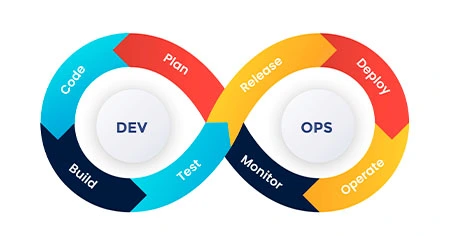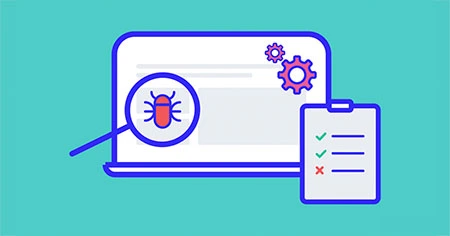When businesses realize they need a strong online presence, they typically look for web developers first. However, effective project management is important for any website development project. Like any other project, web development necessitates careful planning, organization, coordination, and control of resources to achieve specific goals and outcomes. Certain key roles must be filled to ensure successful project management.
A project manager has all of the necessary skills to manage the project itself and a team of people working on various aspects of the project concurrently.
Effective project management is critical to the successful completion of web development projects. In this article, we'll look at key tips and steps for managing Web Development Philadelphia projects so they're completed on time, within budget, and meet client expectations.
Pro Tips to Deliver Your Web Development Project Successfully:
1. Budget
In the initial step, calculate your budget and communicate it to all the managers involved in your project.
You should have some extra money in your budget to cover any bugs, enhancements, or changes that may be required later, but keep a strict budget in mind when beginning any project.
We at SoftCircles offer a variety of custom solutions that can improve usability with custom features while costing less than our competitors.
2. Functionality
You must have a clear idea of the outcome of web app development and the overall functionality and the key features of your web application.
This will allow you to decide on the final application, its use, and the overall UI/UX experience.
3. Initial Communication
This initial communication is critical because it will establish the tone for the professional relationship between you and the Web Development Company Philadelphia
4. Delivery Duration
You must have a specific timeline for when the web application will be developed. Setting this expectation beforehand allows you to speed up your process and complete various development modules more quickly because everyone works under the same deadline and priorities.
A Step-by-step Process of Project Management in Web Development:
1. Define Clear Objectives and Scope
Start clear project objectives, goals, and scope. What is the objective of the website or web application? What features and functionalities should it have? Understanding the fundamentals is crucial. The objective of a Project Management Certification is to validate an individual’s knowledge, skills, and expertise in managing projects efficiently and effectively.
2. Create a Detailed Project Plan

Outline tasks, milestones, deadlines, and dependencies. Gantt charts, for example, can help visualize a project's timeline. For better organization and timely execution, utilize weekly planner templates to create a clear plan and set reminders for important deadlines.
Resources, such as developers, designers, and testers, should be allocated based on project requirements.
3. Choose the Right Development Methodology

Based on the project's complexity, select an appropriate development methodology, such as agile or waterfall. Agile development emphasizes flexibility and iteration, whereas waterfall development is more structured. Review the project plan regularly and adjust it as necessary to meet changing requirements.
4.Content
The content on your website is one of the most important aspects of a site. Your content will communicate your message to your target audience and encourage them to visit your website. However, before you can write your content, you must first determine your goals and purpose, which is why step 2 is so important. Your content should be relevant and interesting enough to keep your users returning.
5. Functionality
This is when you will start to build your website. This is also the point at which all the previous steps will be combined to create the website's look and functionality. You want your website to be easy to use and navigate. Usually, the homepage is created first, followed by all subpages. You should also ensure that the website is accessible from both desktop computers and mobile phones.
6. Effective Communication
Establish clear lines of communication within the project team. Regular emails, meetings, and collaboration tools can help keep everyone current.
Maintain open and transparent communication with clients and stakeholders to manage expectations.
7. Set Realistic Timelines

Set realistic project timelines. Do not overpromise and underdeliver. It's better to give a conservative estimate and deliver sooner than expected.
8. First testing

The development team itself typically carries out this initial testing phase. It involves trying the development product in the exact way it was intended. To ensure that testing is done correctly, a checklist must be created. Different aspects of the website or software are tested, and tasks are assigned for each testing activity. Team members highlight issues and usually assign them to the project manager when they are discovered. The project manager then reviews the issues and assigns the task to the appropriate team member or department. The team will then work together to solve the problems.
9. Continuous testing and experimentation
Continuous testing enables cost-effective and timely releases by identifying issues early in the development cycle. This helps to optimize development and lower overall costs. Continuous testing makes web development delivery more agile, resulting in higher quality and more efficient product releases. Continuous testing allows users outside the development team to test and experiment with the product. This enables the development team to identify new issues and loopholes. Furthermore, team members can continually learn about their product and determine how to improve quality and reliability.
10. Going live
After all initial testing, it is time to roll out or launch the new product. This step entails ensuring proper timing and marketing of the new product.
It is also critical for team members to be on standby to address any bugs that may arise during the launch.
11. Monitoring and Updates
Even after successfully launching your website, it's important to revisit it occasionally. Mistakes can happen, and you want to keep an eye on it to ensure it stays in good shape. You want to resolve any issues quickly and keep your website current.
Conclusion
Effective project management is the basis for successful web development projects. Following these guidelines and remaining proactive and organized can improve your chances of delivering applications and high-quality websites on time and within budget.








